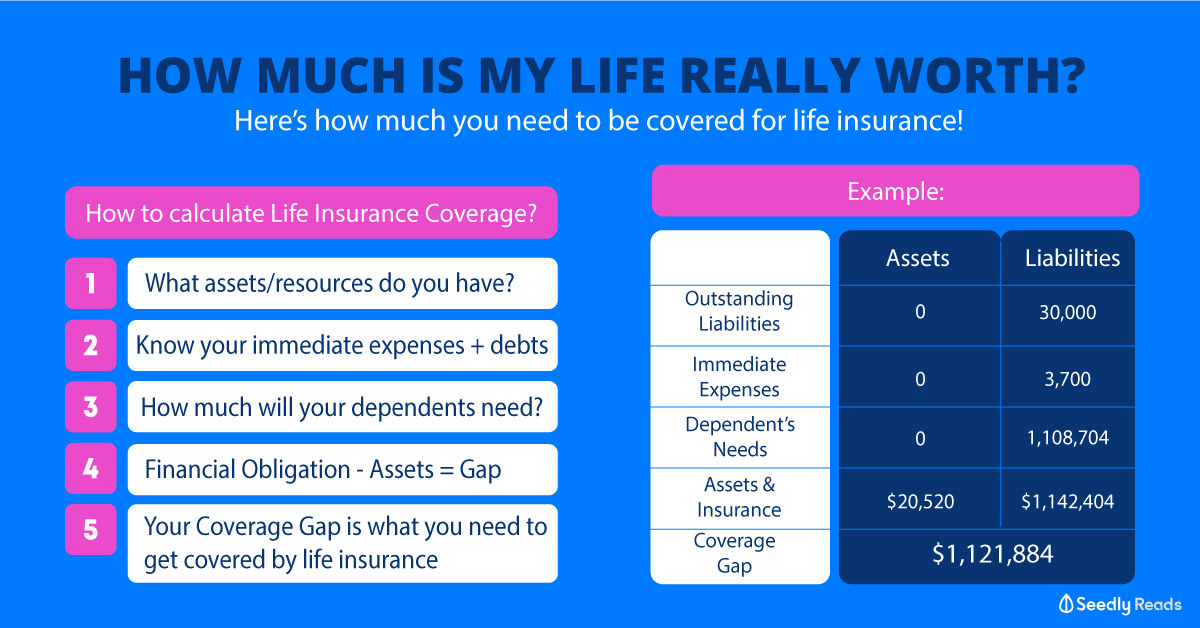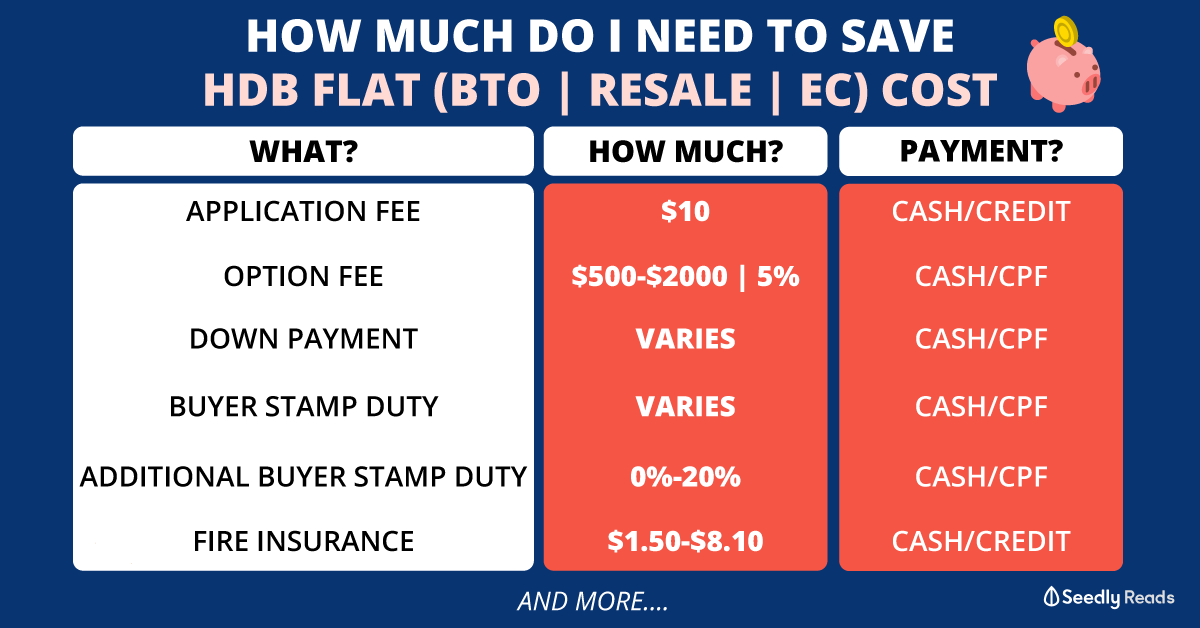Advertisement
Anonymous
How can I determine how much life insurance I REALLY need, and not just based on arbitrary figures?
B/g I’m 32F single with no dependents, I make $12-$14k/month and my liabilities look after themselves should anything happen to me.
I’m also thinking about spreading out my sum assured between term and whole life products - is this a recommended strategy and has this worked well for anyone?
And also opinion on multi-pay CI plans - worth getting or a waste of $? Appreciate your expert advice.
12
Discussion (12)
Learn how to style your text
Fergus Tan
29 Sep 2019
Senior Partner at Vision Advisory Management
Reply
Save
Cedric Jamie Soh
27 Sep 2019
Director at Seniorcare.com.sg
Personally, I buy more CI than Life.
If I die, so be it.....
If I'm sick.... kinda stressful to choose between dying or spending all my family's money.
For the BARE MINIMUM Life I calculate (and I'm harsh)
Life insurance = I buy more than enough to cover my own liabilities.
My home will be free of debt if I passed away (since the compulsory mortgage insurance will cover full debt), so i exclude this liability. Besides, the home can be sold for $1m to meet wife/kids future needs too (stay smaller house lor, since less 1 person anyway)
I didn't include the wife's financial needs as liabilities since she can still work (BARE MINIMUM)
I didn't include kids' financial needs as liabilities since the wife can handle.
I didn't include parents, they have enough to retire (i consider myself lucky for this)
I didn't add in $10k or $20k funeral costs as I have instructions to go cheap. Go paper cardboard coffin if possible. And 1-day funeral to collect "white gold" can liao, chop chop curry pok.
Soooooo...... that's it. Actually, by this bare minimum, I only need a few thousands of insurance ba.
Insurance advisors hate me because no premature death to sell me.
(but I buy lots of CI lol)
Of course, I didn't buy the bare minimum for Life, but this is for your specific question :)
You just include the most pressing liabilities to make sure you pass on with no burdens for ur family...
Like I emphasised, I am more worried about being sick than dead. Sick is extremely expensive in this world.
PS: all my insurance ARE term plans. Endowment and whole life returns are amazingly low and I hope the market can change for the better...
Reply
Save
No money to hire your own financial adviser?
You are earning $12 - $14K/month.
Or just flexing?
Reply
Save
Loh Tat Tian
17 Sep 2019
Founder at PolicyWoke (We Buy Insurance Policies)
I have to say based on your requirement.
1) You spelt out a specific situation with specific needs and concerns You. That is considered asking for Financial Advice. Anyone who tells you otherwise is not speaking the truth. Under MAS regulations, this requires a specific process simplified as EGADIM
Establish the goal/relationship
Gather needs/data
Analysis of the data
Develop the plans/recommendations
Implement the plan
Monitor the plan
So I will not touch on any plans etc and other strategies. You want advice, you get guidelines only.
For what you informed, we can only do guidelines like,
1) no dependents, no need for coverage for a dependent. Do not need that 10 years annual income for death. Liabilities cover themselves
2) 5 years annual income for CI (income replacement). As Hariz has mentioned.
3) Multi-pay CI plans. No scope no nothing, I am afraid I cannot give even a guideline for this. Rather, I can only inform you that to beat the BTIR, a guideline of 6% returns is needed. Else, getting the multi-pay might be worth it.
Please get formal financial advice, from others who care. Not 1 who have no fiduciary duty to you.
Reply
Save
Hariz Arthur Maloy
17 Sep 2019
Independent Financial Advisor at Promiseland Independent
If your liabilities take care of themselves and you don't have any dependents, you don't need covera...
Read 3 other comments with a Seedly account
You will also enjoy exclusive benefits and get access to members only features.
Sign up or login with an email here
Write your thoughts
Related Articles
Related Posts
Related Posts
Advertisement







I think going to the basis of why get insurance might be more important...
One of the key uses of insurance is to cancel liabilities. In some cases, liabilities and assets are in different stages of liquidity, hence companies have gone insolvent because there are not enough assets to take care of liabilities in the short term, although in the long term liabilities will be nett off. This is a consideration to look at, particularly if you have a lot of illiquid assets such as property. For example, mortgage insurance is crucial, because you don't want the banks to do a foreclosure sale of the house.
Another use of insurance is for income replacement. In the case of critical illness, being unable to work means your primary source of income stopped. You would still need to cover your minimum needs, and not to even take into account change of lifestyle quality. Same for death actually. In that case, you are forming an income replacement fund for your dependents. For example, if your parents are in their 60s, their financial plan might have afforded them financial independence for now, but would they be reliant for you for any allowance or physical care in their 70s or 80s? It's a tough question to answer. Not to mention if eventually you get married and have kids, that's new dependents altogether. I had a married friend who just gave birth this year. She is 39 years old, and she told me she has saved enough for early retirement by 45. Looks like her plans just went off the road.
The 3rd use for insurance is for alleviating minor inconvenience that is not catastrophic. Examples would be a personal accident, travel insurance, home contents, etc. They will hurt when it happens, but it won't change your lives. This includes situations where your house catches fire due to a neighbour, much like in Ang Mo Kio recently.
The last use would be to leave a legacy. My belief is that we are here to leave the world a better place for the future. Our value adds to the world, so as to speak. Even though I am single and no kids, I bought a $1million term insurance when I was 32 years old, many years ago. In the unforeseen circumstance that something happens to me, I will quite definitely change my family's life. If not a wife or kid, then my sister. I've seen enough rich people to know that family background matters during the early years of a kid's development. Some people might set up a scholarship, some might donate to a charity.
With regards to term and whole life, there's no answer really... There's a huge range of term products... You have those that cover till 65/70/75, and those that cover to 99. Whole life, you have those with multipliers, which are essentially embedded term insurances, and you have limited pay products. The key is understanding your final objectives and your cash flow forecast for the next 20-30 years of your life. I personally chose to buy a jumbo term for legacy purpose, but note that this covers death. In the case of CI, realistically most CI policies are NOT going to cover you for the whole of life, due to the cost. So expect to undertake the risk in your 70s or 80s if you are alive and have CI. The easiest way to look at it is that term is usually for protection over a fixed period that you know of. Whole life is the safety that covers the whole of life, regardless of when you die. Hence, a term for mortgage cover makes sense. Term for covering yourself until your kids reach 21 years old makes sense. Term for key-man insurance makes sense. Usually, people would use term to get a larger than usual coverage when their budget is not available.
I personally have low CI coverage also. This is even though I had relatives (1st and 2nd-degree relatives) who have had diabetes, heart attack, leg amputation, lung cancer, Alzheimer's, blood sepsis due to UTI. I think people generally have different beliefs on CI and it's the effect on death or work.
Likewise for Early CI. In most cases of early CI, you are still able to work, hence you won't need extended coverage for that. However, the cost of treatment is still pricey. It is also highly likely that if you do get a CI policy, you would want to get a multi pay anyway. The reason is that if you got CI once, you are unlikely to be able to buy a policy. However, your paradigm then would be that you are more likely to want to buy coverage. So to me, it makes sense for someone who wants to buy CI, to buy a multi pay policy.
Based on your profile above, without understanding the risk you are willing to undertake, it seems to me that it may make sense for you to undertake the protection risk by having a lower coverage, and looking to increase your passive cash flow, ie diverting more of your income into investments for the purpose of attempting to replace 50-80% of your active income. You would then look to take a reduced insurance coverage just in case something really happens in the next 30 years (till 62 y/o). Up to a point where if you are willing to stay in B class wards in restructured hospitals and seek CI treatment there, you can actually undertake the risk and channel more towards investments. (And I would heavily emphasize, THIS DOES NOT CONSTITUTE PERSONAL FINANCIAL PLANNING ADVICE AS I DO NOT HAVE THE FULL FACTS. This is just what I might have done if I am in your shoes.)
Personally, I suggest you talk to a few more planners. If they dress like a waiter and wants to sell you saving plans, walk out. However, if you do find the first meetup consultation helpful, consider paying a fee, or buying a meal :)
If you would like to look for someone who does a deep dive into your goals, values, challenges, and experiences before talking about financial planning, feel free to reach out :) https://rplg.co/talktofergus